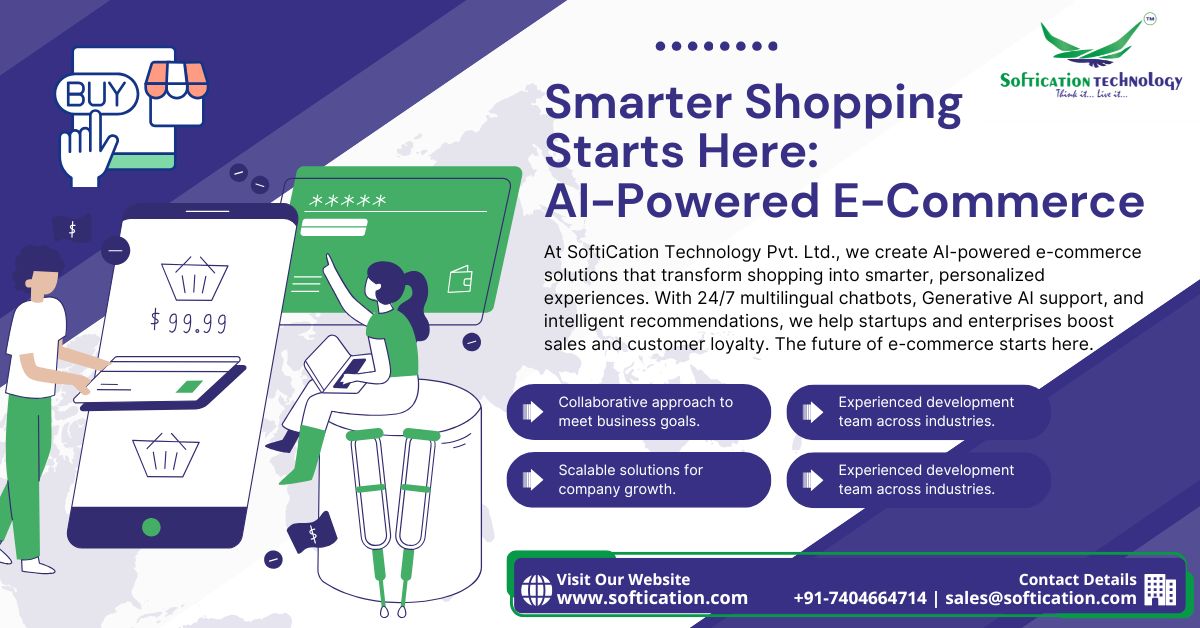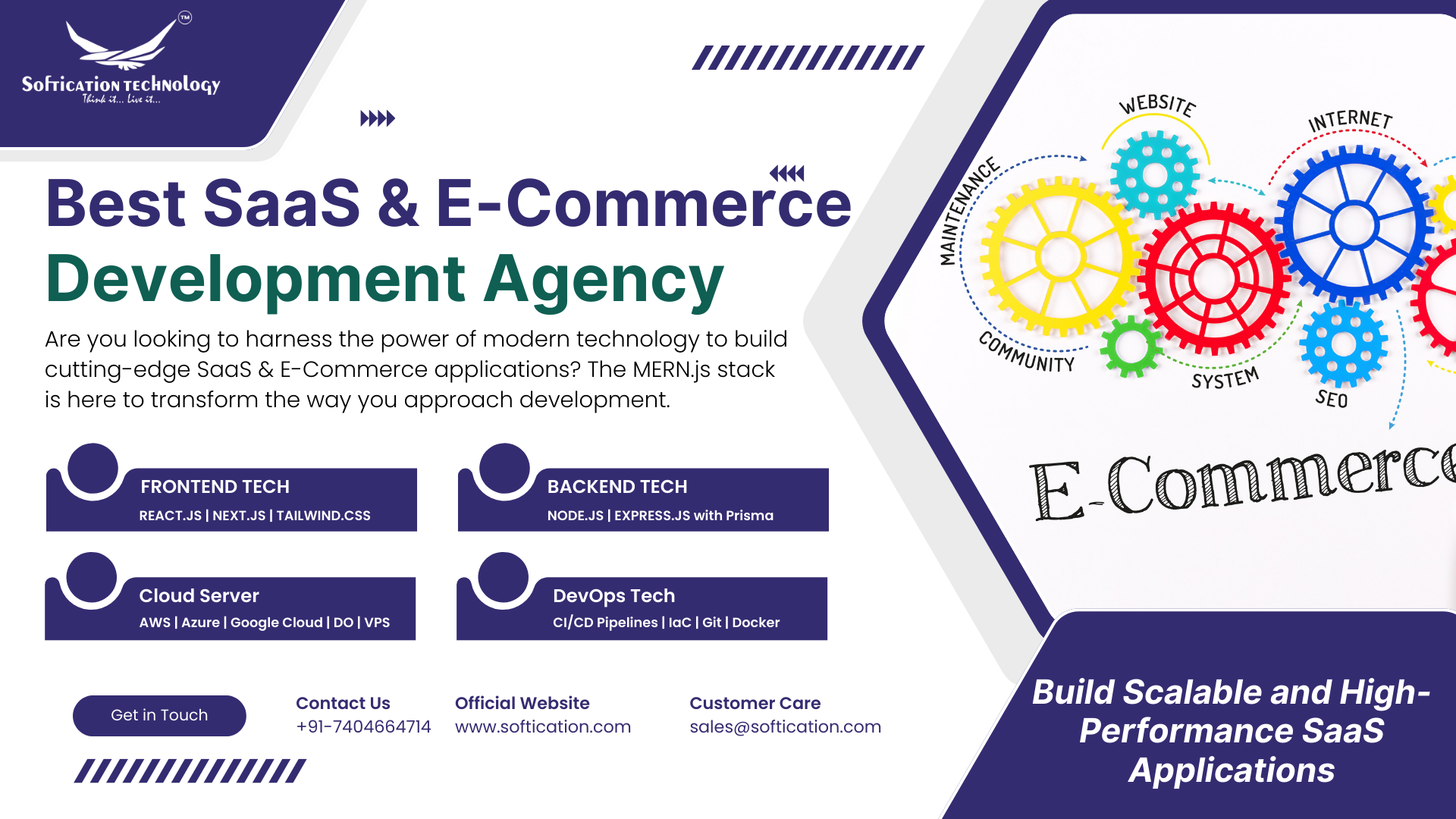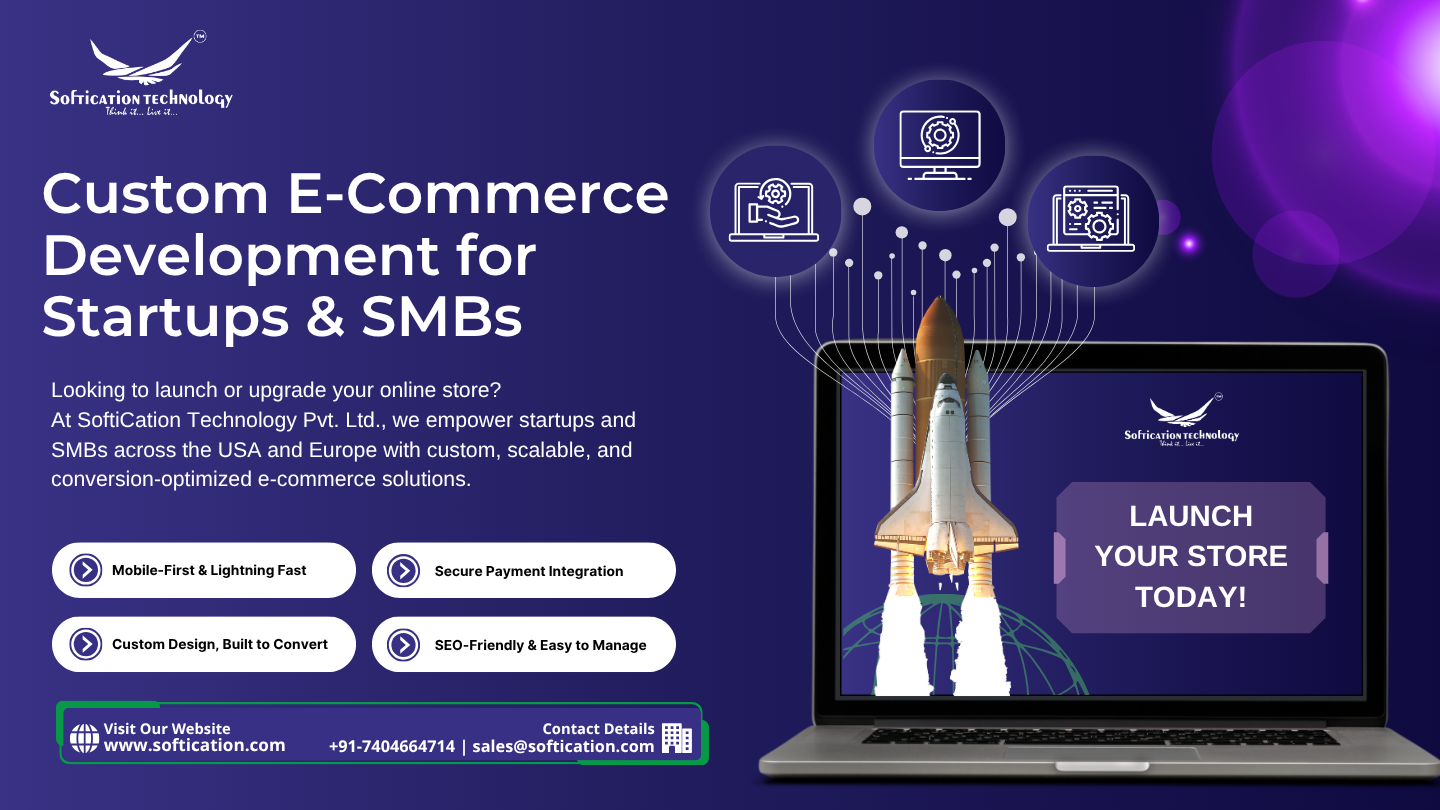The Power of E-commerce Website Development
In today's digital era, e-commerce has become increasingly significant for businesses of all sizes. The ability to sell products and services online has revolutionized the way consumers shop and has opened up new opportunities for businesses to reach a global audience. E-commerce website development plays a crucial role in harnessing the power of online selling and maximizing business growth.
The Growing Significance of E-commerce
E-commerce has experienced exponential growth over the past decade. The convenience and accessibility it offers have made online shopping a preferred choice for consumers worldwide. In fact, according to recent studies, e-commerce sales are projected to reach trillions of dollars in the coming years.
The shift in consumer behavior towards online shopping has been accelerated by factors such as technological advancements, changing demographics, and the increasing prevalence of mobile devices. As more people embrace the ease and convenience of online shopping, businesses must adapt to this evolving landscape to stay competitive.
Harnessing the Benefits of E-commerce Website Development
E-commerce website development is the process of creating a robust and user-friendly online platform that enables businesses to showcase their products, manage inventory, process payments, and provide a seamless shopping experience to customers.
By investing in e-commerce website development, businesses can leverage several benefits. These include:
- Global Reach: An e-commerce website breaks geographical barriers, allowing businesses to reach customers around the world. This expands the customer base and potential sales opportunities.
- 24/7 Availability: Unlike physical stores with limited operating hours, e-commerce websites are accessible 24/7. Customers can browse and make purchases at their convenience, which increases sales potential.
- Cost Efficiency: E-commerce websites eliminate the need for a physical storefront, reducing overhead costs associated with rent, maintenance, and staffing. This makes it an affordable option for startups and small businesses.
- Data-driven Insights: E-commerce platforms provide valuable insights through analytics, allowing businesses to track customer behavior, measure conversions, and optimize marketing strategies for better results.
- Personalization and Targeted Marketing: With e-commerce, businesses can segment their customer base and deliver personalized shopping experiences. Targeted marketing campaigns can be implemented to reach specific audience segments, increasing the chances of conversion.
To fully harness the benefits of e-commerce, businesses need to prioritize the development of an intuitive and user-friendly website. This involves understanding business goals and objectives, selecting the right e-commerce platform, designing an intuitive user interface, and optimizing for mobile responsiveness. These considerations are vital in creating a seamless and engaging online shopping experience for customers.
As the significance of e-commerce continues to grow, businesses must adapt and embrace the power of e-commerce website development to drive growth, connect with customers, and stay ahead in the digital landscape.
Key Considerations for E-commerce Website Development
When embarking on the journey of e-commerce website development, there are key considerations that should be taken into account to ensure success. Understanding your business goals and objectives, as well as choosing the right e-commerce platform, are crucial steps in the development process.
Understanding Your Business Goals and Objectives
Before diving into e-commerce website development, it's important to have a clear understanding of your business goals and objectives. This will help guide the development process and ensure that your website is aligned with your overall business strategy. Some key questions to consider include:
- What products or services do you offer?
- Who is your target audience?
- What are your short-term and long-term business goals?
- What is your budget for website development and maintenance?
- Do you have any specific features or functionalities that you require for your website?
By answering these questions, you can create a roadmap for your e-commerce website development and make informed decisions throughout the process.
Choosing the Right E-commerce Platform
Selecting the right e-commerce platform is a critical decision in the development of your website. The platform you choose will serve as the foundation for your online store and impact various aspects of your business, including inventory management, payment processing, and customer experience.
When choosing an e-commerce platform, consider the following factors:
- Ease of use: Look for a platform that is user-friendly and intuitive, allowing you to manage your online store with ease.
- Scalability: Consider the scalability of the platform, ensuring that it can accommodate the growth of your business in the future.
- Customization options: Evaluate the level of customization offered by the platform, as this will enable you to create a unique and branded online store.
- Integration capabilities: Check if the platform integrates seamlessly with other essential tools and systems, such as inventory management and email marketing platforms.
- Security: Ensure that the platform provides robust security measures to protect customer data and facilitate secure transactions. Learn more about e-commerce website security for best practices.
To help you make an informed decision, it can be beneficial to consult with an experienced e-commerce development agency or seek recommendations from industry experts.
By understanding your business goals and objectives and selecting the right e-commerce platform, you lay a solid foundation for the development of your e-commerce website. These key considerations will help ensure that your website aligns with your business strategy and provides an optimal experience for your customers.
Building a User-Friendly E-commerce Website
When it comes to e-commerce website development, creating a user-friendly experience is essential for attracting and retaining customers. In this section, we will explore two key aspects of building a user-friendly e-commerce website: designing an intuitive user interface and optimizing for mobile responsiveness.
Designing an Intuitive User Interface
An intuitive user interface (UI) is crucial for guiding visitors through your e-commerce website with ease. A well-designed UI enhances user engagement, encourages exploration, and ultimately leads to higher conversion rates. Here are a few key considerations when designing the UI for your e-commerce website:
- Clear Navigation: Implement a clear and organized navigation structure that allows users to easily find what they're looking for. Use descriptive categories, subcategories, and menus to guide users to the right products or pages.
- Simplified Checkout Process: Streamline the checkout process to minimize friction and increase conversions. Use a step-by-step approach, provide clear instructions, and include progress indicators to keep users informed of their progress.
- Prominent Search Functionality: Incorporate a prominent search bar that allows users to quickly search for specific products or keywords. Implement filters and sorting options to help users refine their search results.
- Visual Hierarchy: Use visual cues, such as contrasting colors, size variations, and whitespace, to create a clear visual hierarchy. Highlight important elements like product images, prices, and call-to-action buttons to attract attention and guide users through the purchase journey.
- Consistent Branding: Maintain consistent branding throughout your e-commerce website to establish trust and reinforce your brand identity. Use consistent colors, typography, and imagery to create a cohesive experience for your visitors.
Optimizing for Mobile Responsiveness
With the increasing use of mobile devices for online shopping, optimizing your e-commerce website for mobile responsiveness is crucial. A mobile-responsive design ensures that your website adapts seamlessly to different screen sizes and provides an optimal user experience on smartphones and tablets. Here are some best practices for mobile optimization:
- Responsive Design: Utilize responsive design techniques to automatically adjust the layout, content, and functionality of your e-commerce website based on the screen size of the device being used. This ensures a consistent and visually appealing experience across all devices.
- Mobile-Friendly Menus: Optimize your navigation menu for mobile devices by using a collapsible or hamburger menu. This allows for efficient use of screen space and makes it easy for users to access different sections of your website.
- Thumb-Friendly Buttons: Ensure that buttons and interactive elements on your e-commerce website are large enough and well-spaced to accommodate touch interactions. This prevents accidental clicks and frustration for mobile users.
- Fast Page Load Speed: Mobile users expect fast-loading pages. Optimize your e-commerce website for performance by minimizing file sizes, leveraging caching techniques, and using a content delivery network (CDN) to deliver content quickly to users across the globe.
- Mobile Checkout Optimization: Streamline the mobile checkout process by minimizing the number of form fields and simplifying the input process. Implement mobile-friendly payment options, such as mobile wallets, to provide a seamless checkout experience.
By focusing on designing an intuitive user interface and optimizing for mobile responsiveness, you can create a user-friendly e-commerce website that enhances the shopping experience for your customers. Remember to regularly test your website on different devices and incorporate user feedback to continually improve and refine your design.
Essential Features for E-commerce Websites
When it comes to developing an e-commerce website, incorporating essential features is crucial for providing a seamless shopping experience for your customers. In this section, we will explore three key features that every e-commerce website should have: a product catalog and inventory management system, secure payment gateways, and order tracking and customer support capabilities.
Product Catalog and Inventory Management
A well-organized and easily navigable product catalog is essential for showcasing your products and enticing customers to make a purchase. Your e-commerce website should feature a user-friendly interface that allows visitors to browse through your product offerings with ease. Categorizing products, implementing filters, and providing search functionality can enhance the user experience and help customers find what they're looking for quickly.
In addition to an appealing product catalog, efficient inventory management is crucial to ensure accurate stock levels and prevent overselling. Your e-commerce platform should include robust inventory management capabilities, allowing you to track stock quantities, set low-stock alerts, and automatically update inventory levels as sales are made. This helps you maintain inventory accuracy and avoid disappointing customers with out-of-stock items. For more information on inventory management, check out our article on e-commerce inventory management.
Secure Payment Gateways
Building trust and ensuring the security of online transactions is paramount for e-commerce success. Integrating secure payment gateways into your website is essential to protect sensitive customer information and facilitate smooth, hassle-free transactions. By partnering with reputable payment processors and utilizing secure socket layer (SSL) encryption technology, you can provide a secure environment for customers to make purchases without compromising their personal and financial data.
Offering a variety of payment options can also enhance the user experience and cater to different customer preferences. Popular payment methods such as credit cards, debit cards, digital wallets, and even alternative payment options like PayPal can help maximize conversion rates and ensure a seamless checkout experience. For more information on optimizing your e-commerce website for conversions, check out our article on e-commerce conversion rate optimization.
Order Tracking and Customer Support
Providing transparent order tracking and reliable customer support is essential for fostering trust and customer satisfaction. Your e-commerce website should include features that allow customers to track the progress of their orders, providing them with real-time updates on shipping and delivery. This not only reduces customer inquiries but also enhances their overall shopping experience.
In addition to order tracking, offering comprehensive customer support options is key to resolving any issues or concerns that may arise during the purchasing process. This can include providing easily accessible contact information, such as a dedicated customer support email address or phone number. Integrating live chat or chatbot functionality can also enhance customer support by providing instant assistance and answers to frequently asked questions. For more information on customer engagement and retention, check out our article on e-commerce email marketing.
By incorporating these essential features into your e-commerce website, you can create a user-friendly and secure platform that encourages customer engagement and drives sales. Remember to choose an e-commerce platform that offers robust capabilities and scalability to meet the evolving needs of your business. With the right features in place, you can enhance your online presence and power the growth of your e-commerce business.
Enhancing Your Online Presence
To maximize the success of your e-commerce website, it's crucial to enhance your online presence through effective strategies. This section will explore three key areas: search engine optimization (SEO) strategies, social media integration and marketing, and customer engagement and retention.
Search Engine Optimization (SEO) Strategies
Implementing SEO strategies is essential for improving the visibility of your e-commerce website in search engine results. By optimizing your website for relevant keywords, you can attract organic traffic and increase your chances of converting visitors into customers.
Key SEO strategies for e-commerce websites include:
- Conducting thorough keyword research to identify relevant and high-performing keywords in your industry.
- Optimizing on-page elements such as meta titles, descriptions, and headings with targeted keywords.
- Creating unique and informative product descriptions that appeal to both search engines and potential customers.
- Optimizing your website's loading speed to provide a seamless user experience.
- Building high-quality backlinks from reputable websites to enhance your website's authority.
Implementing these SEO strategies will help your e-commerce website rank higher in search engine results and reach a wider audience. For more in-depth information on e-commerce SEO, consider our article on e-commerce SEO services.
Social Media Integration and Marketing
In today's digital landscape, social media platforms play a crucial role in increasing brand visibility and driving traffic to your e-commerce website. By integrating social media into your marketing strategy, you can engage with your target audience, build brand loyalty, and promote your products or services.
Key social media integration and marketing strategies for e-commerce websites include:
- Creating engaging and shareable content that aligns with your brand image and resonates with your target audience.
- Integrating social media sharing buttons on your website to encourage visitors to share your products or content.
- Running targeted social media ad campaigns to reach a broader audience and drive traffic to your e-commerce website.
- Leveraging influencer marketing by partnering with relevant influencers to promote your products or services.
- Monitoring social media analytics to gain insights into your audience's preferences and optimize your social media strategy.
By effectively utilizing social media integration and marketing, you can increase brand awareness, drive website traffic, and ultimately boost your e-commerce sales. To learn more about this topic, explore our article on e-commerce social media marketing.
Customer Engagement and Retention
Building strong relationships with your customers is vital for the long-term success of your e-commerce business. By focusing on customer engagement and retention, you can establish trust, encourage repeat purchases, and foster brand loyalty.
Key strategies for customer engagement and retention in e-commerce include:
- Implementing personalized email marketing campaigns to keep customers informed about new products, promotions, and exclusive offers.
- Offering exceptional customer support through various channels, such as live chat, email, or phone, to address any queries or concerns.
- Implementing customer loyalty programs to reward repeat customers and encourage continued engagement.
- Collecting and utilizing customer feedback to improve your products, services, and overall customer experience.
- Providing a seamless and user-friendly checkout process to minimize cart abandonment rates.
By prioritizing customer engagement and retention, you can cultivate a loyal customer base and drive repeat purchases. For more insights on this topic, our article on e-commerce customer engagement and retention can provide further guidance.
By implementing effective SEO strategies, leveraging social media integration and marketing, and focusing on customer engagement and retention, you can enhance your online presence and drive growth for your e-commerce website. Keep in mind that these strategies should be tailored to your specific audience and industry, ensuring that they align with your overall business goals and objectives.
The Future of E-commerce Website Development
As technology continues to evolve at a rapid pace, the future of e-commerce website development holds exciting possibilities. To stay ahead in the competitive online marketplace, businesses need to be proactive in embracing emerging technologies and adapting to changing consumer behaviors and preferences.
Embracing Emerging Technologies
The future of e-commerce website development lies in embracing emerging technologies that enhance the user experience and streamline business operations. Here are a few key technologies that are shaping the future of e-commerce:
- Artificial Intelligence (AI): AI-powered chatbots and virtual assistants can provide personalized customer support, recommend products based on customer preferences, and automate various aspects of the e-commerce experience.
- Augmented Reality (AR): AR technology allows customers to visualize products in a real-world context, enhancing their online shopping experience. From trying on virtual clothing to placing furniture in their living room, AR has the potential to revolutionize product visualization.
- Voice Commerce: With the rise of smart speakers and voice assistants, voice commerce is gaining traction. Integrating voice search and voice commands into e-commerce websites can provide a hands-free shopping experience for customers, making it more convenient and accessible.
- Blockchain Technology: Blockchain technology offers enhanced security and transparency in e-commerce transactions. By implementing blockchain-based solutions, businesses can build trust with customers and streamline payment processes.
- Internet of Things (IoT): IoT devices can connect with e-commerce websites to provide real-time data and insights. For example, smart appliances can automatically reorder supplies when they run low, creating a seamless shopping experience for customers.
Adapting to Changing Consumer Behaviors and Preferences
Consumer behaviors and preferences are constantly evolving, and e-commerce businesses must adapt to meet their changing needs. Here are a few key areas where businesses should focus their attention:
- Mobile Shopping: As mobile devices become more prevalent, optimizing e-commerce websites for mobile responsiveness is essential. Mobile shopping is on the rise, and businesses need to ensure that their websites provide a seamless and intuitive experience on smaller screens.
- Personalization: Customers now expect personalized experiences when shopping online. E-commerce websites should leverage customer data to offer personalized product recommendations, customized offers, and targeted marketing campaigns.
- Social Commerce: Social media platforms have become powerful channels for e-commerce. Integrating social media marketing and social commerce features into e-commerce websites can help businesses reach a wider audience and drive sales.
- Sustainable Practices: With increasing awareness of environmental impact, consumers are seeking out businesses that prioritize sustainability. E-commerce websites should highlight their sustainable practices, such as eco-friendly packaging or carbon-neutral shipping options, to attract environmentally conscious customers.
By embracing emerging technologies and adapting to changing consumer behaviors and preferences, businesses can future-proof their e-commerce websites and stay ahead of the competition. It's important to partner with a reliable e-commerce development agency that can help navigate the ever-evolving landscape of e-commerce and implement cutting-edge solutions to drive growth.











